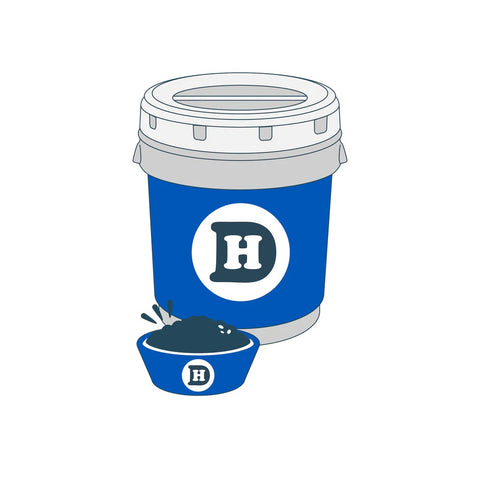How Often Should I Feed my Dog?
Are you unsure about how often to feed your dog? This guide will provide you with tips and recommendations for establishing a healthy feeding frequency for your furry friend. It will also help you determine the appropriate feeding patterns, especially if you are using high-quality grain-free dog food from Delivery Hound, a local dog food delivery service that covers Sydney. By feeding your dog properly, you can not only ensure their health but also contribute to saving the planet by reducing single-use plastic waste.
Feeding Frequency for Dogs: How Often Should You Feed?
Feeding your dog the right amount and at the right frequency is crucial for their overall health and well-being. In this guide, we will discuss the factors to consider when determining how often to feed your dog and provide recommendations for a healthy feeding frequency.
Understand Your Dog's Unique Needs.
Every dog is unique and has different dietary needs. Factors such as age, size, activity level, and overall health should be taken into consideration when determining how often to feed your dog. Puppies, for example, require more frequent meals as they are growing and developing. On the other hand, adult dogs may do well with two meals a day. It's important to consult with your veterinarian to determine the best feeding frequency for your specific dog.
Consider Age, Size, and Activity Level.
When determining the feeding frequency for your dog, it's important to consider their age, size, and activity level. Puppies have higher energy needs and faster metabolisms, so they typically require more frequent meals. It's recommended to feed puppies three to four times a day until they are about six months old. As they grow older, you can gradually reduce the number of meals to two times a day.
Size is another important factor to consider. Larger breeds may have a slower metabolism and may do well with two meals a day, while smaller breeds may benefit from three to four smaller meals. It's important to monitor your dog's weight and adjust their feeding frequency accordingly to maintain a healthy weight. Always feed a premium dog food suitable to your dog's size. We recommend feeding a large breed formula for Aussie dogs over 22kg.
Activity level also plays a role in determining feeding frequency. Dogs that are highly active or participate in intense physical activities may require more frequent meals to fuel their energy needs. On the other hand, less active dogs may do well with fewer meals.
Ultimately, it's best to consult with your veterinarian to determine the ideal feeding frequency for your specific dog. They can take into account your dog's individual needs and provide personalised recommendations for a healthy diet.
Follow a Consistent Feeding Schedule.
One of the key tips for a healthy feeding frequency for dogs is to follow a consistent feeding schedule. Dogs thrive on routine, and having set meal times can help regulate their digestion and prevent overeating. It's recommended to feed your dog at the same times each day, ideally in the morning and evening. This helps establish a routine and allows your dog to anticipate meal times. Avoid free-feeding or leaving food out all day, as this can lead to weight gain and unhealthy eating habits. By following a consistent feeding schedule, you can ensure that your dog is getting the right amount of food at the right times, promoting a healthy diet and overall well-being.
Choose High-Quality, Nutritious Food.
When it comes to feeding your dog, it's important to choose high-quality, nutritious food. Look for dog food that is made with real meat as the first ingredient, as this provides essential protein for your dog's diet. Avoid foods that contain fillers, artificial preservatives, and additives. Instead, opt for brands that use natural ingredients and have a good balance of protein, carbohydrates, and fats. Additionally, consider your dog's specific dietary needs, such as age, breed, and any health conditions they may have. Consulting with your veterinarian can help you determine the best food options for your furry friend. Remember, providing your dog with a high-quality, nutritious diet is essential for their overall health and well-being.
Follow our Healthy Feeding Guide for Man's Best Grain free Dog Food here!
Monitor Your Dog's Weight and Adjust as Needed.
It's important to monitor your dog's weight and adjust their feeding frequency as needed. Just like humans, dogs can become overweight or underweight if their diet is not properly managed. Regularly weigh your dog and consult with your veterinarian to determine their ideal weight range. If your dog is overweight, you may need to reduce their feeding frequency or portion sizes. On the other hand, if your dog is underweight, you may need to increase their feeding frequency or provide additional meals throughout the day. Remember to make gradual changes to your dog's diet to avoid any digestive issues. By monitoring your dog's weight and adjusting their feeding frequency accordingly, you can ensure they maintain a healthy weight and overall well-being.




